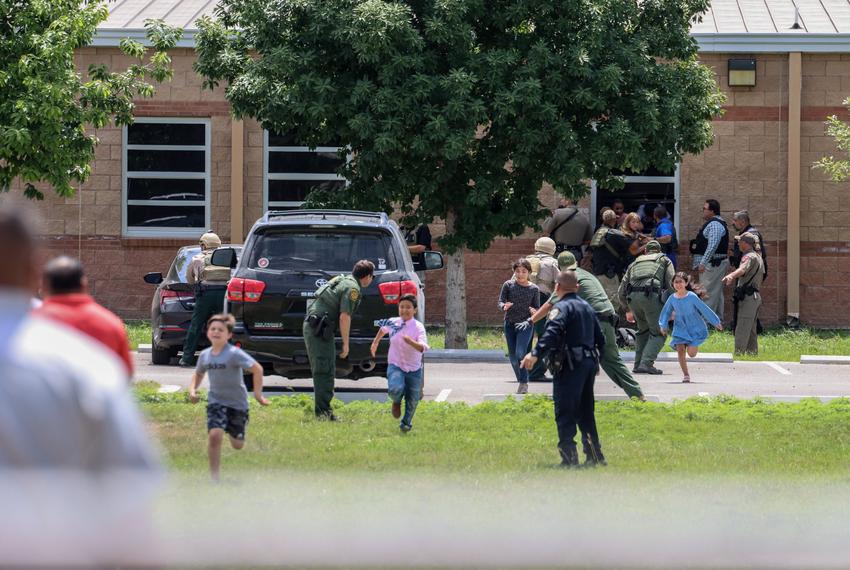Ari Roth ’26, Siena Scungio ’27
School shooting threats have sadly been a part of the educational system in America for many years, and it is not uncommon for schools, including Episcopal, to hold lockdown drills to prepare students and faculty for the potential occurrence of a threat on campus. Additionally, there has been a significant increase in school shooting threats and school shootings since the start of the 2024 school year. According to CNN, as of recent, there have been at least 58 school shootings, quickly approaching last year’s number of 82. Whereas lockdowns were an annual practice, now they occur more frequently due to active threats and tips submitted to schools. The FBI notes that the number of active incidents has steadily increased since 2000.
In addition to these threats, a new 108-page long record of schools across the world that are targets of school shootings has emerged, commonly known as “The List,” or “Hit List.” The document has been circulating on social media, and, as a result, many schools have enforced advanced safety regulations, held mental health seminars, or even briefly closed to ensure the safety of their communities. “The List” mainly concerns schools in Georgia and Texas, but its presence elicits fear in students everywhere, as do other threats beyond this list. Connor Smolenski ’27, experienced a school shooting threat at his middle school in 2021, and he noted that he “went in lockdown for about 3 hours,” and he “wasn’t scared in the moment, but looking back on it, it was a pretty traumatic experience for a seventh grader.” He also highlighted that the incident affected his family and their outlook on school safety, saying, “When my sister and I got home that day my mom was very upset, and she was crying.”

Photo courtesy of The Texas Tribune
Many individuals who commit these acts often battle mental health issues such as depression and anxiety disorders, and the wellness of high schoolers is proving to work hand in hand with other safety measures to reduce school shooting threats. According to The Journal of the American Academy of Psychiatry and the Law, these struggles can be fostered by feelings of failure, isolation, or bullying. Joe Shanahan, Director of Facilities at Episcopal, explained, “When I think of school shootings and the number one driver of those instincts, I think of mental health.”
Owing to this key factor, Episcopal has many systems in place to foster a caring community, both holistically and educationally, for the students. Guidance counselors Ruth Garrett and Caroline Graham are a great example of this support. A trusted adult form was also sent out at the beginning of the year for all Upper School students. If students indicate that they do not have someone they feel comfortable turning to, staff members such as form deans will work with them to improve their relationships and connections. Mike Letts, Head of Upper School, believes, “That [form] can help a lot of things, whether it’s just a kid feeling isolated and alone and not seen, and that is critically important.”
Physical safety measures are also in place at EA, and there is a team that works behind the scenes every day to ensure that we will never experience what so many kids and adults have had to go through in recent years. In addition, Shanahan cites “a very robust access system that locks the school down immediately,” and 320 faculty members dedicated to Episopal’s safety as ways to uphold EA’s guarded environment. Shanahan commented further on the current state of Episcopal’s safety, adding, “We have incidents on campus all of the time, and most of the time you guys will not be aware of them. I like it that way, I like that we can handle things and we can just keep the school day moving along.”
The future of these threats throughout the country and the world is unknown, although the current influx of threats and shootings is already a cause for great concern. Understanding these acts of violence and why they transpire is the first step to taking successful preventative measures in our community, and the most common reason for these tragic acts is poor mental health. Episcopal has its own measures in place to stop these issues before they even start; with available resources, counseling, and a campus security team, EA is taking precautions to keep students and faculty secure.